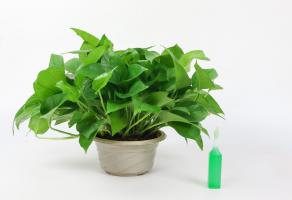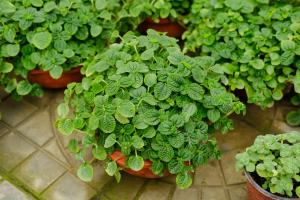Introduction
Tomato plants require a variety of nutrients to grow strong, healthy, and produce delicious fruits. One of the best ways to provide the necessary nutrients is by using a fertilizer. In this article, we'll explore what tomato plant fertilizer is, why it's important, and what types are available.
What is tomato plant fertilizer?
Tomato plant fertilizer is a substance or mixture of substances that provides essential nutrients to the soil and plants. These include macronutrients like nitrogen (N), phosphorus (P), potassium (K), calcium (Ca), magnesium (Mg), and sulfur (S), as well as micronutrients like iron (Fe), manganese (Mn), zinc (Zn), copper (Cu), boron (B), and molybdenum (Mo).
Fertilizers can be organic or synthetic. Organic fertilizers come from natural sources like animal manure, compost, bone meal, and fish emulsion. Synthetic fertilizers are made from chemicals, mostly derived from petroleum.
Why is tomato plant fertilizer important?
Fertilizers are important because they replenish the nutrients that plants need to grow and carry out their vital functions like photosynthesis, respiration, and reproduction. Nutrient deficiency in plants can lead to stunted growth, yellowing leaves, poor fruit production, and susceptibility to pests and diseases.
In addition, fertilizers can improve soil fertility, structure, and water-holding capacity. They can also enhance plant resistance to environmental stresses like heat, drought, and cold.
What types of tomato plant fertilizers are available?
There are various types of tomato plant fertilizers on the market, each with its advantages and disadvantages. The most common ones are:
1. Nitrogen fertilizers
Nitrogen is a crucial nutrient for plant growth as it is involved in the production of chlorophyll, the green pigment that captures light energy for photosynthesis. Nitrogen fertilizers can be inorganic (like ammonium nitrate, urea, and calcium nitrate) or organic (like blood meal, feather meal, and soybean meal).
However, excessive nitrogen can lead to lush foliage at the expense of fruiting, delayed maturity, and increased susceptibility to pests and diseases.
2. Phosphorus fertilizers
Phosphorus is another essential nutrient that is required for root development, seed germination, and fruit quality. Phosphorus fertilizers can be inorganic (like triple superphosphate, monoammonium phosphate, and diammonium phosphate) or organic (like bone meal, rock phosphate, and guano).
The use of phosphorus fertilizers should be balanced as it can cause water pollution and harm aquatic life if it leaches into rivers, lakes, or oceans.
3. Potassium fertilizers
Potassium is a vital nutrient for plant stress tolerance, water regulation, and fruit ripening. Potassium fertilizers can be inorganic (like potassium chloride, potassium sulfate, and potassium nitrate) or organic (like wood ash, seaweed, and greensand).
However, excessive potassium can cause salt buildup in the soil, which can lead to root damage and nutrient imbalances.
4. Calcium and magnesium fertilizers
Calcium and magnesium are secondary macronutrients that are involved in cell wall formation, enzymatic reactions, and plant metabolism. Calcium and magnesium fertilizers can be inorganic (like dolomite lime, gypsum, and Epsom salt) or organic (like fish bone meal, kelp meal, and worm castings).
Calcium and magnesium fertilizers are particularly useful in acidic or sandy soils where these minerals are deficient.
5. Micronutrient fertilizers
Micronutrients are essential elements that are required in small amounts but play vital roles in plant growth and development. Micronutrient fertilizers can be inorganic (like iron sulfate, manganese sulfate, and zinc sulfate) or organic (like seaweed extract, humic acid, and fulvic acid).
The use of micronutrient fertilizers should be based on soil testing and plant symptoms as too much or too little can affect plant health.
Conclusion
Tomato plant fertilizer is a vital tool for ensuring healthy and productive tomato plants. By understanding what tomato plant fertilizer is, why it's important, and what types are available, you can choose the best fertilizer for your needs and achieve great results in your gardening.

 how many times do yo...
how many times do yo... how many planted tre...
how many planted tre... how many pine trees ...
how many pine trees ... how many pecan trees...
how many pecan trees... how many plants comp...
how many plants comp... how many plants can ...
how many plants can ... how many plants and ...
how many plants and ... how many pepper plan...
how many pepper plan...






























